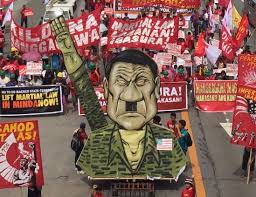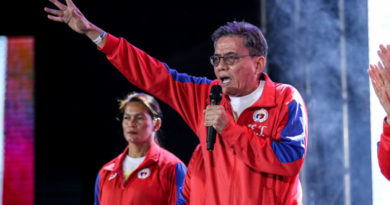OP-ED HORIZONS: The Fourth Republic: Duterte vs oligarchs
In his classic manual of governance “The Prince” (1532), Niccolò Machiavelli warned that “there is no more delicate matter to take in hand, nor more dangerous to conduct, nor more doubtful in its success, than to set up as a leader in the introduction of changes.” The early-Renaissance thinker emphasized the precarious nature of political change, especially when the sovereign seeks to centralize power, corral rivals, flout age-old traditions, and introduce dramatic changes.
.
What was once unthinkable is now probable. The once mighty and untouchable are now vulnerable like never before, as Philippine politics heads into uncharted territory. Our country is in the midst of not only a public health and economic crisis, but also of the seeming disintegration of a decades-long political order. What we confront is nothing less than a crisis of political transition, as seemingly inviolable norms, sentiments, and unspoken rules that once governed our body politic are trampled upon with impunity. Just like how the imperious Charles de Gaulle heralded France’s Fifth Republic, the strong-willed populist in Malacañang is accomplishing something similar in his own country. The perfunctory shutdown of the country’s leading independent media outlet for the first time since the dark days of dictatorship should, for instance, be a cause for grave concern. Even more troubling, this is happening in the midst of extraordinary times, when any sort of public gathering, mass protest, and normal functioning of institutional checks and balances is close to impossible.
.
First they came after critical netizens, and now after the country’s biggest media network. There will likely be a chilling effect on the country’s media landscape and beyond. For partisans of democratic freedom, these are unquestionably “Times of Troubles.”
.
Upon closer examination, however, what becomes clear is that something far deeper, and potentially disruptive, is at stake. And we need to understand this systemic shift beyond personalities and partisanship. This is not only about President Duterte and his personal grievances against the country’s leading liberal elites. Nor is it only about rule of law and press freedom.
.
Our unruly “democracy,” which has long been dominated by a liberal oligarchy behind the veil of formal freedom, is giving way to a new era. As I chronicled in my book “The Rise of Duterte” (2017), the Filipino leader is both a symptom and harbinger of structural transformation in Philippine politics. And this is partly an outcome of a century-old deadlock in our political system.
.
Since its inception in the late 19th century, the Philippine state formation process has been consistently undermined by the dominance of a rapacious and feckless oligarchy. Not only did intra-oligarchy rivalries doom the struggle for independence against imperial Spain and America, it also bedeviled the emerging indigenous state throughout the past century.
.
As leading scholars such as Samuel Huntington and Joel Migdal have observed, the greatest political crisis facing countries such as the Philippines is the corrosive absence of an autonomous and capable state. In short, we never had a “strong state” that could successfully mobilize national resources, discipline unruly elites, and provide crucial basic infrastructure and public services.
.
While our nation-building project has been undermined by sub-optimal cultural relativism, including the absence of an inclusive national lingua franca, our state-building project has been shattered by warlords, oligarchs, and neo-imperial machinations.
.
Manuel Quezon and Ramon Magsaysay were our best hopes to establish the foundations of a strong state during what can be termed as the First Republic, stretching from the inter-war to the immediate post-war decades. Ferdinand Marcos’ technocratic dictatorship attempted to close this gap, but it ultimately failed under the weight of its own corruption and cronyism.
.
The two Edsa revolutions, which undergirded our Third Republic, were supposed to build a robust democracy, but few of its ideologues truly appreciated the importance of a strong state as an anchor of individual and collective freedom.
Mr. Duterte’s meteoric rise to power, his authoritarian fantasies, his vindictive campaign against the liberal elite, and his colorful insults and unabashed intimidation of “oligarchs” are reflections of the impotence of the Philippine state.
.
.
Our fascination with strongmen is because of our failure to appreciate the value of a strong state. In many ways, we are entering our Fourth Republic without either martial law or a new constitution. It’s a postmodern political transformation with no precedence in history.
..
SIGN UP TO RECEIVE OUR EMAIL
The most important news of the day about the ASEAN Countries and the world in one email: [email protected]













